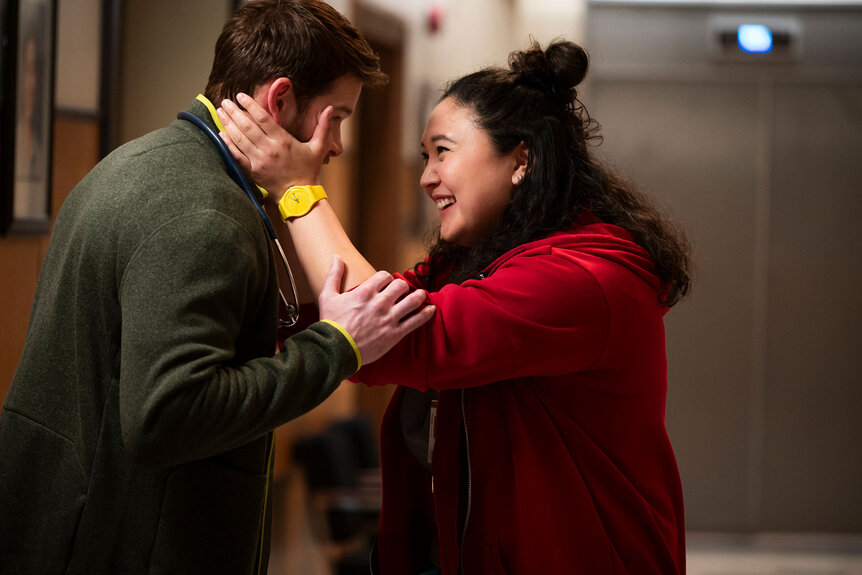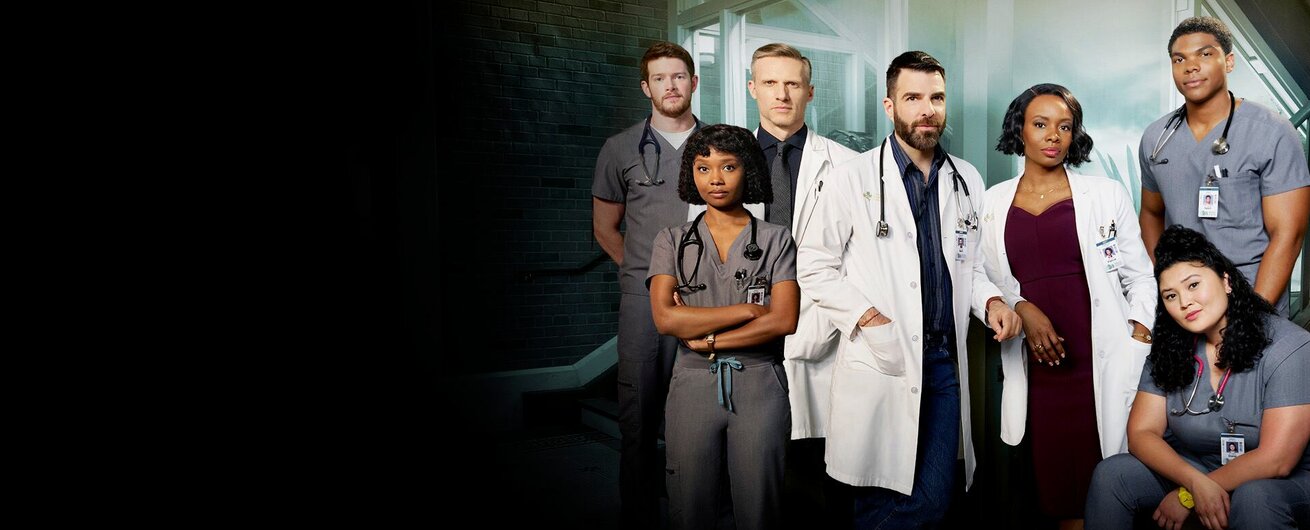Brilliant Minds' Dr. Markus Feels His Patients' Symptoms: Mirror-Touch Synesthesia Explained
Can Mirror-Touch tell us more about humans' capacity for empathy?

After a couple episodes of waiting patiently to learn more about Dr. Van Markus' new diagnosis on Brilliant Minds, Episode 5, "The Haunted Marine," finally starts getting into the nitty-gritty details. In the episode, Van's fellow interns working under Dr. Oliver Wolf (Zachary Quinto) learn of his diagnosis, which Dr. Dana Dang (Aury Krebs) refers to as a "superpower."
RELATED: What Is Maple Syrup Urine Disease? A Brilliant Minds Medical Mystery
Of all the medical mysteries the NBC series has tackled so far, perhaps none has been as head-scratching as Mirror-Touch Synesthesia. We've also been teasing it for a couple weeks; in a jarring scene in Episode 3, a young patient collapses when her heart stops from laughing too hard. In the inverse of what you’d expect from a calm physician, Dr. Van Markus (Alex MacNicoll) suddenly spasms and crashes to the floor with his patient, losing consciousness.
By the end of the episode, Dr. Wolf had landed on this curious diagnosis for his colleague. Mirror-Touch Synesthesia seems straight out of the show creators’ wildest imaginations, but the condition is real and affects a mind-boggling two out of 100 people, according to the University of Delaware.
What is Mirror-Touch Synesthesia?
The term “mirror” refers to the idea that a person mirrors the sensations they see when someone is touched. For instance, a person with the condition sees someone else’s hand being touched, and they also feel that touch on their own hand. It can cause a person to feel pain when they see someone stubbing a toe. Even mirroring a near-death experience, as depicted in Brilliant Minds, is not too far-fetched. Other mirrored sensations can include itching, tingling, cramps, and pressure, ranging from light to deep pain at times.
RELATED: Zachary Quinto Knows Brilliant Minds' Cases Will Make You Cry: "That's Good!"
Though more studies are needed, doctors believe “mirror touch” is caused by structural brain differences that make it difficult to process information received through the five senses. While there are many types of sensory processing disorders, MTS specifically makes it hard for the brain to discern between yourself being touched and another individual.
Brilliant Minds explores the latest theories
Rather than stopping there, however, the series takes its cues from the latest medical research by exploring the phenomenon’s connections with empathy. Doctors theorize that “synesthetes,” as they’re known, have an enhanced ability to understand and feel the emotional states of others.
Ribbed by his colleagues as a “delicate flower” and always “freaking out,” Brilliant Mind’s Dr. Markus seemed as perplexed as anyone this season about his overwhelming feelings of empathy for others. He struggles with putting needles in patients and collapses right along with them.
“You’re right, Jacob. I freak out around patients,” he told Dr. Nash (Spence Moore II) in Episode 3, adding that he blocks out as much of the world around him as he can. After Dr. Wolf floated the idea of “mirror touch,” he admitted that in addition to tasting the food others are eating, he’s prone to “losing it” when he sees someone crying on the subway.
After the dizzying realization set in for Markus that he may have MTS, Dr. Wolf reframed the condition as a potential superpower — just like Dana in Episode 5 — telling the stunned doctor that it could be an “asset” instead of a “curse.”
RELATED: How Brilliant Minds Is Taking Inspiration from This Is Us and Will & Grace Over ER
"People with mirror-touch literally feel what the person they’re talking to is feeling,” Wolf enthused with a gleam in his eye.
“Right now, I’m feeling that you’re a little too excited about this,” retorted Markus.
Real-world scientists have been exploring the fascinating and potentially beneficial connections with empathy. In one study, “synesthetes” were better able to recognize emotions than others when shown photos of a person’s face, categorizing levels of anger and happiness simply based on expressions.
On Brilliant Minds, Dr. Markus’ heightened empathy allows him to understand patients on a deeper level than others and hopefully help solve stubborn medical mysteries. The trick, however, is not succumbing to the same debilitating symptoms as the patients. And as the series continues, we’re looking forward to seeing how it all plays out.
New episodes of Brilliant Minds premiere on Mondays on NBC at 10/9c and are available to stream on Peacock.















